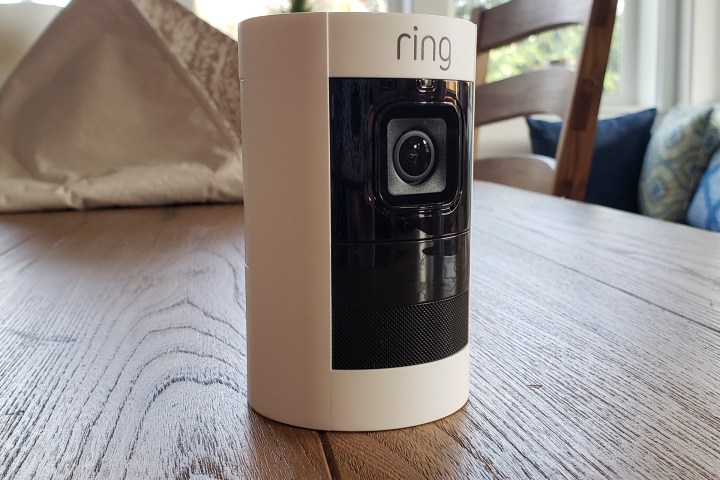
Two new patent applications from Ring, recently acquired by Amazon, indicate that the company is interested in technology that could potentially identify what it deems “suspicious” individuals — convicted felons, sex offenders or people on a “most wanted” list among them — and automatically report them to the police, including copies of any video surveillance the smart doorbell captures.
CNN found two patents filed by Ring’s chief executive Jamie Siminoff that hypothesize that video surveillance that reports bad actors to the police immediately would be “a powerful deterrent against would-be burglars,” and could potentially compare such facial images to a “database of suspicious persons.”
It’s not a totally foreign concept — Google’s Nest Hello video doorbells use facial recognition software to identify friends and relatives but they don’t automatically call 911 if one of your relatives happens to have a criminal record, however minor.
The American Civil Liberties Union, in a statement, identifies the potential risk to American citizens.
“Amazon is dreaming of a dangerous future with its technology at the center of a massive decentralized surveillance network, running real-time facial recognition on members of the public using camera installed in people’s doorbells,” ACLU representative Jacob Snow said.
It’s also not the first time Ring has experimented with crowd-sourcing community policing. Siminoff recently told CNET about the company’s new app called Neighbors, which allows people to “view and comment on crime and security information in their communities,” that “We’re seeing it become a foundation. It enhances everything we do in the community.” The Neighbors app currently has, reportedly, more than a million active users but also a host of mixed reviews.
“We are always innovating on behalf of neighbors to make our neighborhoods better places to live, and this patent is one of many ideas to enhance the services we offer,” a spokesperson told Digital Trends. “However, patents do not necessarily reflect current developments to products and services, and this patent certainly does not imply implementation. Privacy is of the utmost importance to us, and we always design our services to include strong privacy protections.”
The ACLU also pointed to the potential social dangers of facial recognition identifying someone who represents no actual threat to the resident who owns a Ring smart doorbell.
“Just imagine if a person who has a criminal is delivering a package, but the system has been set to automatically recognize anyone who has a prior criminal history as a ‘suspicious person’ and then the cops show up at this place when this person is just doing their job,” Snow said to The Washington Post. “Then you have an interaction between police and this individual, and we’ve seen how interactions between people of color and the police can turn deadly for any reason or for no reason at all.”
Updated December 18, 2018 to include a statement from Ring.
Editors' Recommendations
- Blink Mini 2 vs. Ring Stick Up Cam Pro: Which is the best security camera?
- Ring Battery Doorbell Pro vs. Aqara G4: Which is the better video doorbell?
- Does the Ring Stick Up Cam Pro rotate or swivel?
- Ring Battery Doorbell Pro vs. Nest Doorbell: Which is the better video doorbell?
- Should you buy a wired or wireless video doorbell?


